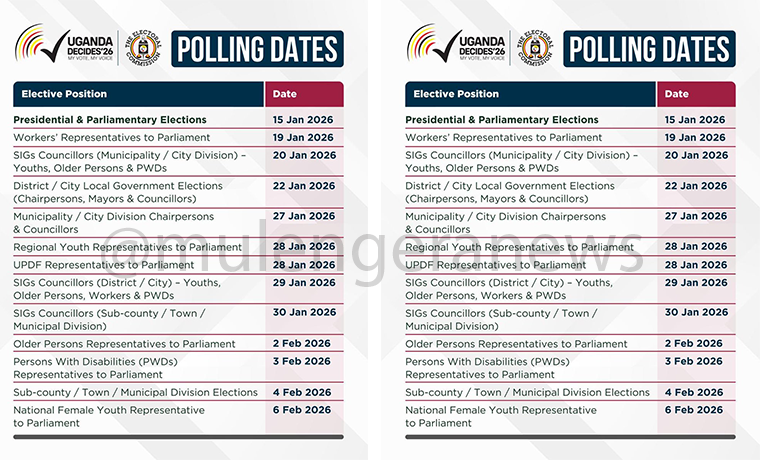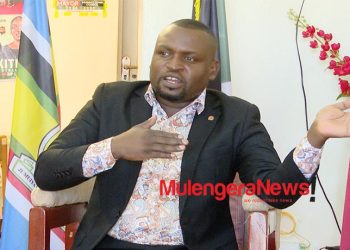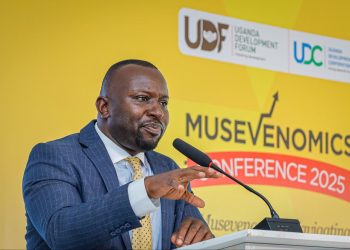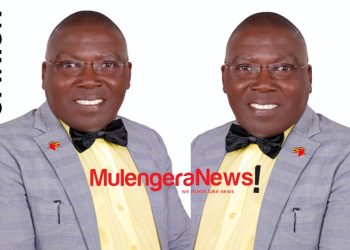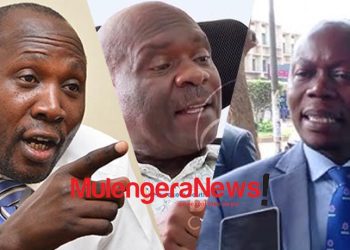By Our Reporters
Prof Emmanuel Mutebile, who has been BoU governor since 2001 without break, is in his 4th term and at the expiry of his current term in 2021, he will have headed the Central Bank for 20 straight years. He has always been revered by local and international peers, and rating agencies, as the iron-fisted economist who rescued Uganda’s economy from the ruins of the 1980s. He has also occasionally won the accolade of being the African Central Bank governor of the year and his reforms have resulted into inflation being contained at the current 5.7% and trillions of depositors’ money being safe notwithstanding the collapse of commercial banks, like Greenland and more recently Crane Bank, under his reign. But the glamorous profile of Mutebile, who in 2015 secured a very unexpected 4th term (President Museveni retained him in order to isolate JPAM and fortify his votes in Kigezi), has lately been diminished by especially the increased scrutiny the Crane Bank acquisition by BoU caused on his leadership style. Protesting Crane Bank owner Sudhir Ruparelia got court to throw out law firms that Mutebile’s BoU had hired at very exorbitant fees on grounds that they were conflicted (conflict of interest) having worked for Sudhir, BoU and subsequently DFCU. This fracas demystified the image of a prudent governor Mutebile had projected over the years. The frail governor was further caught flat-footed when, in a bid to redeem the remainder of BoU’s image, he reshuffled close to 60 top officials many of whom, backed by BOD members, defied the transfers. The matter ended up at the office of the IGG Irene Mulyagonja who determined to cut the hitherto nearly infallible Mutebile to size. Mutebile’s breathing space and invincibility rapidly diminished, with IGG threatening sanctions for defying her authority, until President Museveni made a timely intervention and asked IGG to back off.
 DEMISTIFIED;
DEMISTIFIED;
All these have combined to diminish Mutebile’s indispensability, suitability and thereby increasing the need for Museveni to begin shopping for his successor sooner than would ordinarily have been expected. Whereas his 5 year contract ends in 2021, Museveni can circumvent all hurdles and get Mutebile out of the job way ahead of 2021. And you can’t legally challenge his decisions to terminate your employment contract. This exactly is what he did to ex-IGP Gen Kayihura by firing him when he was barely two years in his new term/contract. There are lots of indicators, corroborated by revelations by knowledgeable sources, that Mutebile will be gotten rid of sooner than is generally expected. Already a team, sanctioned by Museveni, is out on a head-hunting spree seeking out suitable candidates for both the governor position and deputy governor.
WHO IS ON THE LIST?
Those whose CVs are being scrutinized include Prof Augustus Nuwagaba who, like Mutebile, is a well exposed and well-schooled Mukiga from Kigezi sub region. Others are PSST Keith Muhakanizi, Deputy Governor Dr. Louis Kasekende, Prof Ddumba-Sentamu, former Finance Ministry Director Economic Affairs Lawrence Kiiza (recently fled intrigue at Finance) and Micheal Atingego, a high flying Ugandan working with the IMF’s Fiscal Affairs department. He previously worked at BoU in the Research Directorate which he headed at some point. Giving him the job would end the stereo-typed and prejudiced beliefs that Museveni can’t let a none- westerner head Bank of Uganda.
 Lawrence Kiiza; He powerfully directed economic affairs at the Finance Ministry and directly supervised URA up to 2017 when he quit under mandatory retirement at 60. He declined offers to prolong his stay after discovering that fellow technocrats, including his seniors, were envying him a lot after President Museveni publicly praised him as hardworking and incorruptible during the ex-PSST Chris Kasami’s funeral. Museveni rated him close to giants like ex-Auditor General James Kakooza and Kasami whose final sendoff he was presiding over. Humorous Kiiza lives in Kololo near Amama Mbabazi’s home and sources say if he doesn’t become Governor, DG or Minister, then he could bounce back as PSST replacing Muhakanizi in the post-Mutebile era. Kiiza is also wealthy, assertive and independent-minded.
Lawrence Kiiza; He powerfully directed economic affairs at the Finance Ministry and directly supervised URA up to 2017 when he quit under mandatory retirement at 60. He declined offers to prolong his stay after discovering that fellow technocrats, including his seniors, were envying him a lot after President Museveni publicly praised him as hardworking and incorruptible during the ex-PSST Chris Kasami’s funeral. Museveni rated him close to giants like ex-Auditor General James Kakooza and Kasami whose final sendoff he was presiding over. Humorous Kiiza lives in Kololo near Amama Mbabazi’s home and sources say if he doesn’t become Governor, DG or Minister, then he could bounce back as PSST replacing Muhakanizi in the post-Mutebile era. Kiiza is also wealthy, assertive and independent-minded.
 Keith Muhakanizi; His major strength is that he has been Secretary to Treasury and Permanent Secretary in the Ministry of Finance. He has amassed experience in handling fiscal policy management. He holds a Masters Degree from the University of Manchester and is well known within the World Bank circles. His major weakness is that he has been part of the incumbent team at the heart of all the past endeavors aimed at transforming the Ugandan economy and could therefore seek to run the show at BoU in the business as usual fashion. Keith has also been linked to controversies at the Ministry of Finance including the recent allegedly “unauthorized” borrowing of Shs720bn from PTA Bank at relatively higher interest rates which put him in the spot light. However, he was duly cleared by the Auditor General after a long time in the boxing ring with Parliament. The fact that Museveni has previously felt comfortable with a former PSST moving on to become governor increases chances for the otherwise well known, trusted and workaholic Muhakanizi who, just like Mutebile, hails from Kigezi (Rukungiri specifically). Muhakanizi has also been around long enough and has endured plenty of Parliamentary scrutiny and thereby developing a thick skin required of a Governor. He too isn’t a stranger in the workings of BoU having sat on its governing BOD for such a long time. He is also assertive, independent and won’t hesitate telling Museveni the economic bitter truths he may not want to hear provided he is convinced it’s the right thing. The recent public interrogation in Mbale, during the age limit case, clearly manifested the extent to which Muhakanizi has gotten used to publicly being in the hot seat; which the BoU can’t avoid. Sources say in case Muhakanizi leaves Finance and ceases to be PSST, the likes of NPA ED Dr. Joseph Muvawala are potential candidates for Museveni to consider for elevation. Muvawala is as knowledgeable and experienced having worked with AfDB before. And has the Museveni trust and ear just like Muhakanizi, Lawrence Kiiza and others being considered as having potential to steer the economy in the post-Mutebile era.
Keith Muhakanizi; His major strength is that he has been Secretary to Treasury and Permanent Secretary in the Ministry of Finance. He has amassed experience in handling fiscal policy management. He holds a Masters Degree from the University of Manchester and is well known within the World Bank circles. His major weakness is that he has been part of the incumbent team at the heart of all the past endeavors aimed at transforming the Ugandan economy and could therefore seek to run the show at BoU in the business as usual fashion. Keith has also been linked to controversies at the Ministry of Finance including the recent allegedly “unauthorized” borrowing of Shs720bn from PTA Bank at relatively higher interest rates which put him in the spot light. However, he was duly cleared by the Auditor General after a long time in the boxing ring with Parliament. The fact that Museveni has previously felt comfortable with a former PSST moving on to become governor increases chances for the otherwise well known, trusted and workaholic Muhakanizi who, just like Mutebile, hails from Kigezi (Rukungiri specifically). Muhakanizi has also been around long enough and has endured plenty of Parliamentary scrutiny and thereby developing a thick skin required of a Governor. He too isn’t a stranger in the workings of BoU having sat on its governing BOD for such a long time. He is also assertive, independent and won’t hesitate telling Museveni the economic bitter truths he may not want to hear provided he is convinced it’s the right thing. The recent public interrogation in Mbale, during the age limit case, clearly manifested the extent to which Muhakanizi has gotten used to publicly being in the hot seat; which the BoU can’t avoid. Sources say in case Muhakanizi leaves Finance and ceases to be PSST, the likes of NPA ED Dr. Joseph Muvawala are potential candidates for Museveni to consider for elevation. Muvawala is as knowledgeable and experienced having worked with AfDB before. And has the Museveni trust and ear just like Muhakanizi, Lawrence Kiiza and others being considered as having potential to steer the economy in the post-Mutebile era.

 Louis Kasekende; At just 59, Kasekende stands very high chances of becoming governor having waited for so long. Sources say when he was lured to leave his AfDB job years ago where he was Chief Economist, the expectation was that he was to deputize Mutebile for a few years and eventually succeed him as governor. And 2015 was meant to be his year to commence his governorship but the new political dynamics imposed by the unanticipated Mbabazi candidature revitalized Mutebile who Museveni had to retain as part of broader efforts to isolate JPAM while fortifying the Kigezi block vote. A staunch Catholic from Masaka, Kasekende is vastly connected and experienced having served as Chief Economist at AfDB up to 2009 when he re-joined BoU which he had previously served as Director Research & Policy. He is in his 2nd term as DG having initially been appointed so in 2010. He hails from the Central region which makes his elevation good for Museveni’s PR as it silences critics who are always out for evidence to accuse the big man of favoring fellow westerners. His major strength is that he is well known in the World Bank system where he worked as alternate Director. He has also served as Senior Economist for the African Development Bank. He holds a Masters and PhD Degrees from the University of Manchester. His only weakness, which a sufficiently informed Museveni could overlook, is that he has been part of Mutebile-led BoU team that continues to be faulted for controversial transactions the most prominent one being the recent closure of Crane Bank-formerly the 3rd largest Commercial Bank, at least by financial assets. This bank was also ranked and named for 10 consecutive times as the best performing commercial Bank in Uganda, until 2016, when it was found to be heavily undercapitalized. In its own judgment, the Central Bank declared Crane Bank unable for “resuscitation” and took over its operations under Statutory Management. Later, after a forensic audit, Crane Bank was taken over by DFCU in a transaction which is still a subject of very costly litigation. There are also growing calls for another forensic audit of BoU’s sale of Crane Bank to DFCU.
Louis Kasekende; At just 59, Kasekende stands very high chances of becoming governor having waited for so long. Sources say when he was lured to leave his AfDB job years ago where he was Chief Economist, the expectation was that he was to deputize Mutebile for a few years and eventually succeed him as governor. And 2015 was meant to be his year to commence his governorship but the new political dynamics imposed by the unanticipated Mbabazi candidature revitalized Mutebile who Museveni had to retain as part of broader efforts to isolate JPAM while fortifying the Kigezi block vote. A staunch Catholic from Masaka, Kasekende is vastly connected and experienced having served as Chief Economist at AfDB up to 2009 when he re-joined BoU which he had previously served as Director Research & Policy. He is in his 2nd term as DG having initially been appointed so in 2010. He hails from the Central region which makes his elevation good for Museveni’s PR as it silences critics who are always out for evidence to accuse the big man of favoring fellow westerners. His major strength is that he is well known in the World Bank system where he worked as alternate Director. He has also served as Senior Economist for the African Development Bank. He holds a Masters and PhD Degrees from the University of Manchester. His only weakness, which a sufficiently informed Museveni could overlook, is that he has been part of Mutebile-led BoU team that continues to be faulted for controversial transactions the most prominent one being the recent closure of Crane Bank-formerly the 3rd largest Commercial Bank, at least by financial assets. This bank was also ranked and named for 10 consecutive times as the best performing commercial Bank in Uganda, until 2016, when it was found to be heavily undercapitalized. In its own judgment, the Central Bank declared Crane Bank unable for “resuscitation” and took over its operations under Statutory Management. Later, after a forensic audit, Crane Bank was taken over by DFCU in a transaction which is still a subject of very costly litigation. There are also growing calls for another forensic audit of BoU’s sale of Crane Bank to DFCU.
 Prof Augustus Nuwagaba; His linked-in page on google, which we accessed, shows that Prof Nuwagaba is an International Consultant on Economic Transformation in the African Region. His main strength is that he is well known in the World Bank system, having been their regular Consultant in various economic policy issues across Africa. He is a Graduate of London School of Economics (holds Master of Science) and also holds a PhD in Wealth Creation and Poverty Reduction of Makerere University. His professional networking website also shows that Prof Nuwagaba holds a Masters Degree (MBA) from ESAMI and his Research Thesis was” Impact of Central Bank Monetary Policy on Commercial Bank Competitiveness.” He is also generally accepted as being friendly to the NRM system whereby he has always been invited in Kyankwanzi to constitute a panel of experts to induct NRM MPs each time there is a new Parliament. That, combined with his expertise, creates some mileage for him given that in all his major appointments, Museveni has always paid attention to the nominees’ political line and knowledgeable sources say Nuwagaba is on the list of those being vetted for a major role in the post-Mutebile era. Prof Nuwagaba has been a consultant for the various Ministries across African countries on Spend Analysis for Governments; inclusive budget formulation and for Developing Financial and other economic Models. He was also Team Leader and main Consultant for review of the National Development Plan (NDP) and International Consultant for Design of Economic development model for the six (6) East African Community partner States. His strength is premised on the wide knowledge of both monetary policy-having worked as Consultant for Bank of Uganda on various assignments and knowledge of fiscal operations as he has served on Audit Committee and other regular assignments in the Ministry of Finance for more than 15 years. Prof Nuwagaba was Chairman and Founder of Makerere Retirement Benefits Scheme and he reportedly built this scheme (with Fund Managers and Custodians-commercial Banks) from scratch up to the portfolio of Shs76 Billion in late 2000s when he handed the Scheme over to his successor. He is the Chief Executive of REEV Consult International, a Consulting Firm whose website shows heavy involvement in Economic modeling with the core mission harnessing Competitiveness of African countries in the Global Economy. His main weakness is that he has not worked in Bank of Uganda.
Prof Augustus Nuwagaba; His linked-in page on google, which we accessed, shows that Prof Nuwagaba is an International Consultant on Economic Transformation in the African Region. His main strength is that he is well known in the World Bank system, having been their regular Consultant in various economic policy issues across Africa. He is a Graduate of London School of Economics (holds Master of Science) and also holds a PhD in Wealth Creation and Poverty Reduction of Makerere University. His professional networking website also shows that Prof Nuwagaba holds a Masters Degree (MBA) from ESAMI and his Research Thesis was” Impact of Central Bank Monetary Policy on Commercial Bank Competitiveness.” He is also generally accepted as being friendly to the NRM system whereby he has always been invited in Kyankwanzi to constitute a panel of experts to induct NRM MPs each time there is a new Parliament. That, combined with his expertise, creates some mileage for him given that in all his major appointments, Museveni has always paid attention to the nominees’ political line and knowledgeable sources say Nuwagaba is on the list of those being vetted for a major role in the post-Mutebile era. Prof Nuwagaba has been a consultant for the various Ministries across African countries on Spend Analysis for Governments; inclusive budget formulation and for Developing Financial and other economic Models. He was also Team Leader and main Consultant for review of the National Development Plan (NDP) and International Consultant for Design of Economic development model for the six (6) East African Community partner States. His strength is premised on the wide knowledge of both monetary policy-having worked as Consultant for Bank of Uganda on various assignments and knowledge of fiscal operations as he has served on Audit Committee and other regular assignments in the Ministry of Finance for more than 15 years. Prof Nuwagaba was Chairman and Founder of Makerere Retirement Benefits Scheme and he reportedly built this scheme (with Fund Managers and Custodians-commercial Banks) from scratch up to the portfolio of Shs76 Billion in late 2000s when he handed the Scheme over to his successor. He is the Chief Executive of REEV Consult International, a Consulting Firm whose website shows heavy involvement in Economic modeling with the core mission harnessing Competitiveness of African countries in the Global Economy. His main weakness is that he has not worked in Bank of Uganda.
 Prof Ddumba Sentamu: He is on this list for his illustrious CV but also because Museveni has always drawn expertise from the academia most especially Makerere from where the GoU snatched the likes of BoU Director Adam Mugume & NPA’s Muvawala just to mention a few. Prof Ddumba has taught Economics at Makerere University and many Economists can testify that they passed though his hands. He has published an Economics book entitled “Basic Economics for East Africa” which is widely used for training purposes across the country. He was the Makerere Vice Chancellor until last year. He was also Chairman of Centenary Bank BOD, a thing that is presumed to have given him lots of private sector experience. There is also talk of the likelihood of NSSF MD Richard Byarugaba being wooed for a very powerful role at either BoU or Finance Ministry in the post-Mutebile era. His major strength is that he has improved performance of NSSF and he has vast experience in the banking industry where he prestigiously served before crossing over to NSSF. For comments, call/text/whatsapp us on 0703164755!
Prof Ddumba Sentamu: He is on this list for his illustrious CV but also because Museveni has always drawn expertise from the academia most especially Makerere from where the GoU snatched the likes of BoU Director Adam Mugume & NPA’s Muvawala just to mention a few. Prof Ddumba has taught Economics at Makerere University and many Economists can testify that they passed though his hands. He has published an Economics book entitled “Basic Economics for East Africa” which is widely used for training purposes across the country. He was the Makerere Vice Chancellor until last year. He was also Chairman of Centenary Bank BOD, a thing that is presumed to have given him lots of private sector experience. There is also talk of the likelihood of NSSF MD Richard Byarugaba being wooed for a very powerful role at either BoU or Finance Ministry in the post-Mutebile era. His major strength is that he has improved performance of NSSF and he has vast experience in the banking industry where he prestigiously served before crossing over to NSSF. For comments, call/text/whatsapp us on 0703164755!


















